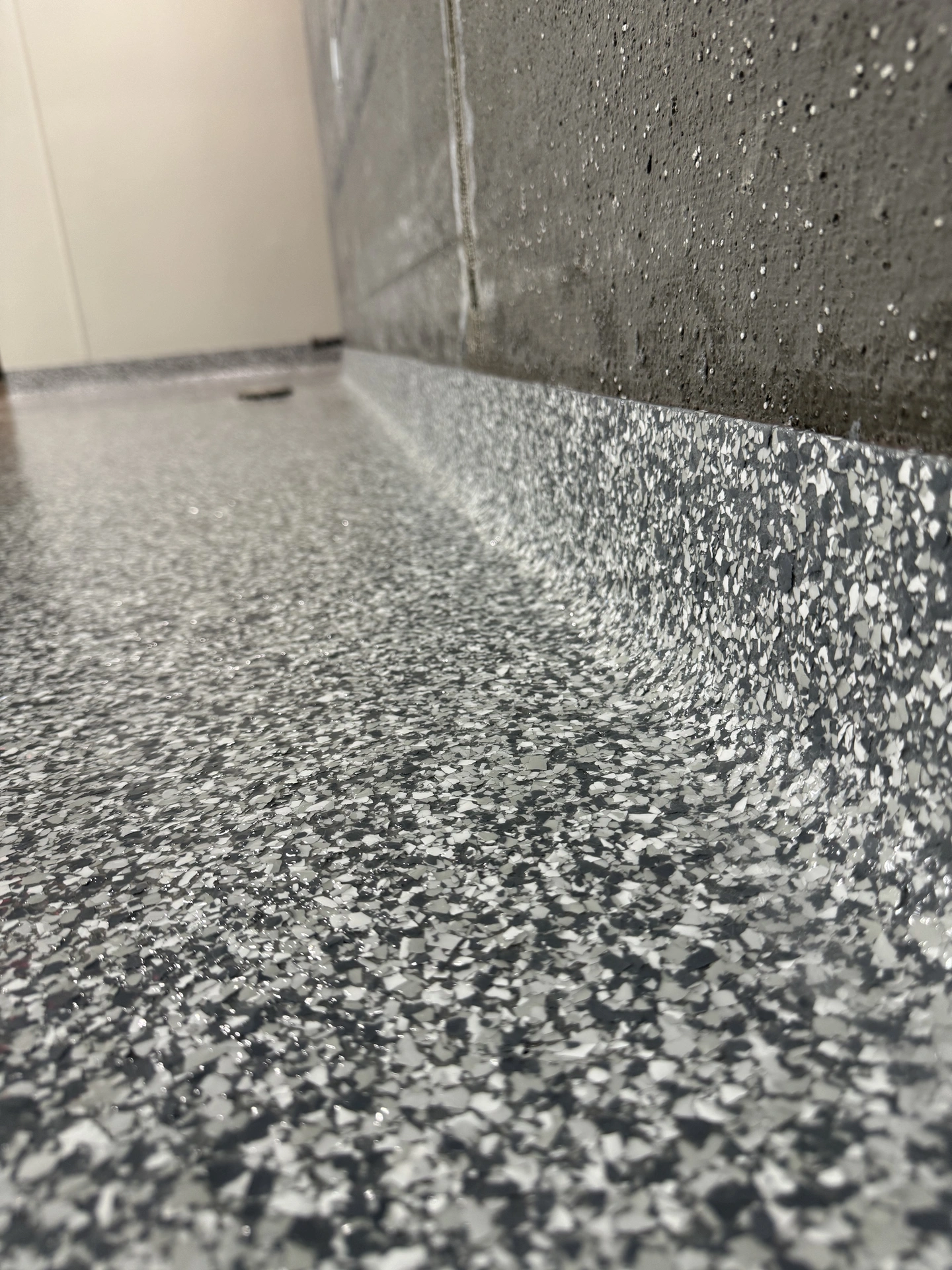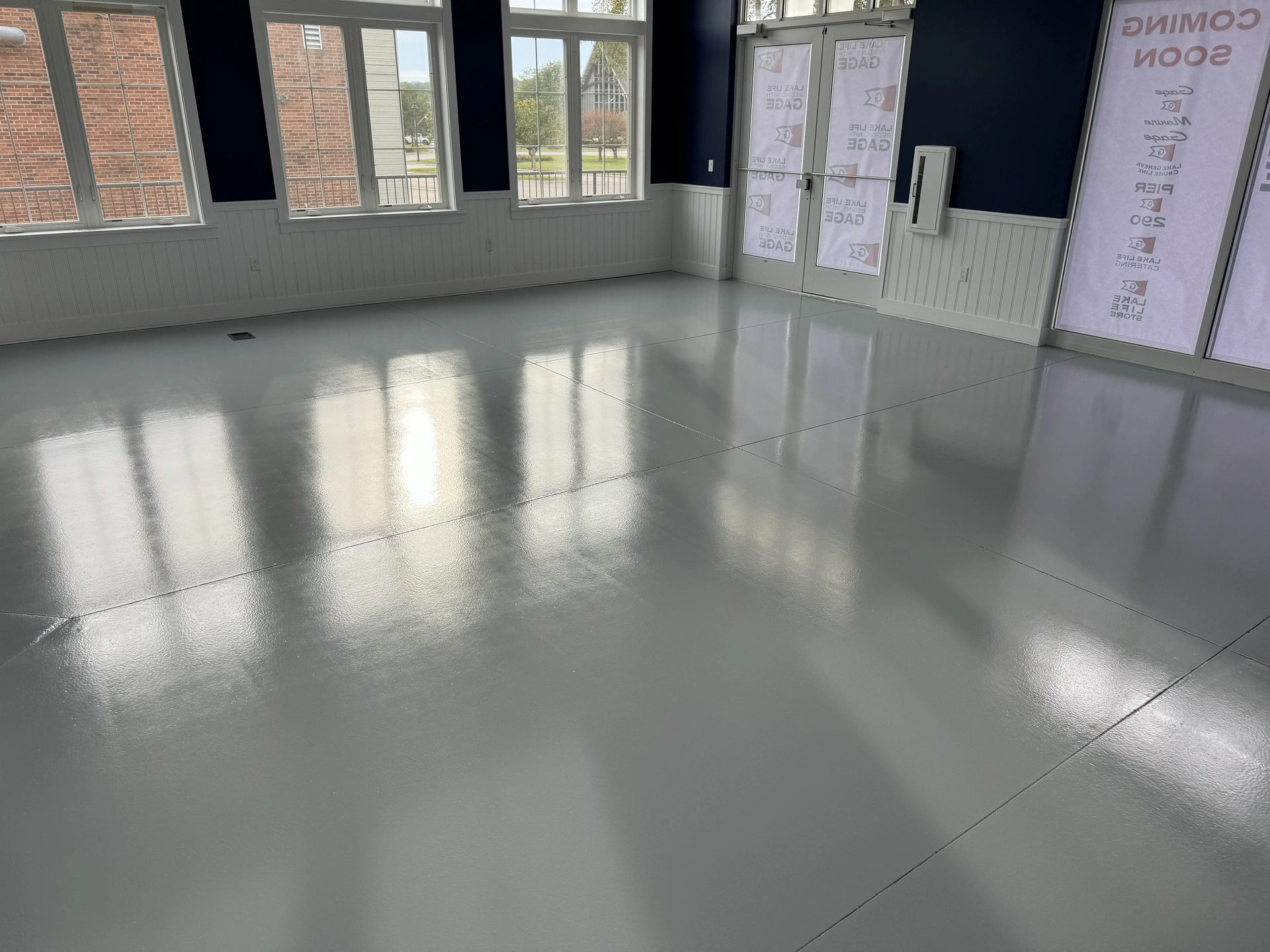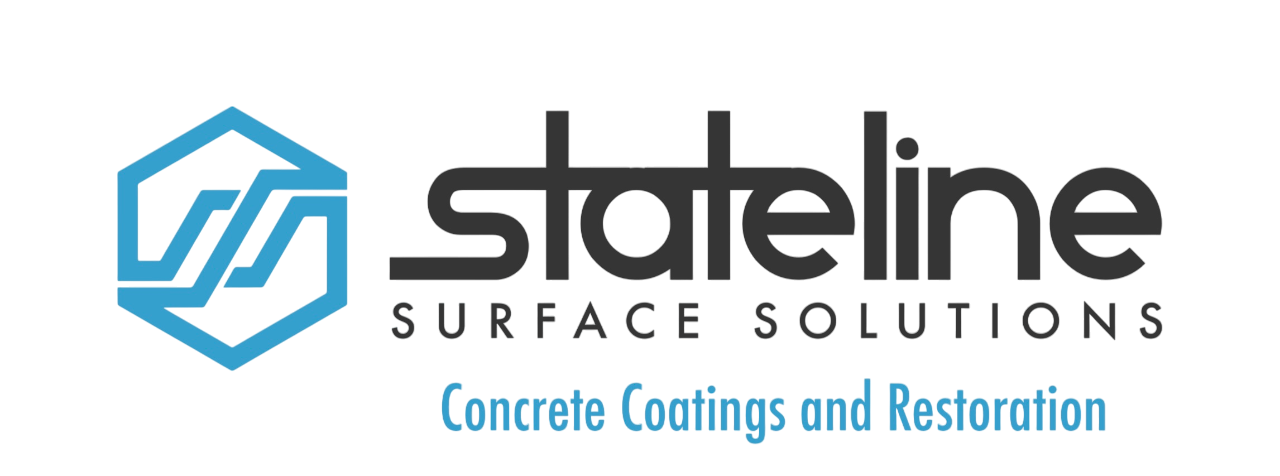FAQ’s by Stage
A professionally installed epoxy floor by a certified installer will give you a high quality and beautiful floor which will last for a long, long time. The most important parts of any successful concrete coating job are surface preparation and the use of the finest quality products. We use top quality shot-blasters, planetary grinders, and hand-held diamond grinding equipment. We use the best commercial/industrial grade epoxy/urethane products which are guaranteed and proven over hundreds of thousands of square feet of concrete. Comparing epoxy from a big box store to a professionally prepared and installed commercial grade floor is like comparing a Pinto to a Porsche!
A major advantage of the flake system is not only is it a stronger and more durable floor, but it also does a great job hiding minor imperfections in the concrete. It also has a beautiful effect over large areas. Since each flake color pattern incorporates many colors; you can select one that will go best with your decor and/or siding and window colors. A quartz floor also is great at hiding imperfections; it is also a floor that adds the most value. Quartz flooring doubles the coating and quartz but doesn’t double the price.
A full list of color options can be found on our webpage under the tools tab.
A full list of color options can be found on our webpage under the tools tab.
Absolutely! The colors shown on our tools page are our standard Stateline Surface Solutions color combinations, but we can create almost any color combination you would want.
Flake is the larger speckling on the floors, while quartz is smaller dot like colorations. Flake is generally an atheistic choice while quartz is often used in environments that require surface friction to prevent slipping. The first image on the left is typical flake with cove base. The second image on the right, is closer to what a quartz floor would resemble.

As part of our process, we will repair any cracks, bug holes, and spalled areas in your floor before we install the epoxy coating.
A smooth epoxy or urethane finished floor has limited slip resistance and while looking “slick” – it truly can be. We recommend at least the addition of a slip resistant additive to a smooth finished floor to prevent a slip or fall. A vinyl flake floor has a textured feel to it and is normally no more slippery than regular concrete when wet. Quartz floors also have a textured feel and provide an adequate amount of slip resistance. If you have a concern about slippage, we can add a slip resistant additive to the topcoats which will make the floor even more slip resistant.
We utilize the most up to date equipment. Our vacuums have the ability to capture nearly 100% of dust and airborne contaminants that we are removing in the preparation phase. If we need to scarify or utilize one of our more aggressive stock removal machines, our process utilizes a semi-dustless grinding system. We go to great lengths to protect your possessions, equipment, and vehicles.
Yes, in a full chip application any imperfection in the concrete will be minimized or completely hidden. After preparing your floor and before the introduction of resin materials, we remove any loose concrete and repair cracks with a fast drying epoxy product that is stronger than the actual concrete.
All residential applications have a one year workmanship and product warranty against peeling (delaminating), staining, and material defects. Cracks and other repairs which give way due to the shifting of the substrate below are not warranted.
Concrete takes about 30 days, on average, to cure. After that we can apply our coating.
Before Installation
You need to have everything off of the floor before we arrive so we can perform our work. If time and manpower permits, we can assist in the movement of heavier items.
Yes, we ask that the floor be swept clean of most debris before we arrive.
Most installations can be completed within 2 to 3 days depending on the prep and coating system used. Weather (heat, cold, humidity, and wind) can all play a factor in the final outcome of a floor. We typically look to the current weather forecast before we proceed on a floor. If you don’t like the weather, wait a few minutes…….
Our epoxy/urethane system is only as good as the substrate that it’s attached to. Therefore, we would need to remove the existing coating so that our coating can penetrate the concrete. The only way our coating is coming up is if the concrete itself comes up.
After Installation
Depending on the time of year and temperature, you can normally walk on the surface within 24 hours. The optimal time to harden for light foot traffic is 48 hours. We offer faster drying systems that are available if a quicker turnaround is needed.
Each case is different; however, we recommend 5-7 days when the temperature is around 77 degrees before driving your vehicle on the coating. We also recommend placing clean cardboard, carpet, or something similar under the tires temporarily. Technically, the coating cures just like concrete and needs 30 days to fully cure. After that time, the cardboard, carpet, etc is not necessary.
For a light cleaning, just use a broom, dust mop, or leaf blower. Simple ammonia water applied with a mop works great for a deeper cleaning. It can also be power washed with normal pressure washers or with a simple garden hose. You’ll want to stay away from acids or soaps because these leave a film, which, when wet, becomes very slippery. We ask that you wait at least one week before introducing water to the floor, as the epoxy is still in the curing process.
Yes, an epoxy floor is very strong and durable, but it can still be damaged by mechanical means. For example, if a heavy object like a sledge hammer were to be dropped on it, or if you were to drag a heavy table with steel legs across it, the result would most likely be a scratch or gouge. An epoxy floor finish reacts much like concrete – it can be scratched just like regular concrete can be scratched. An epoxy floor will be very durable and last for years looking beautiful with reasonable care.
